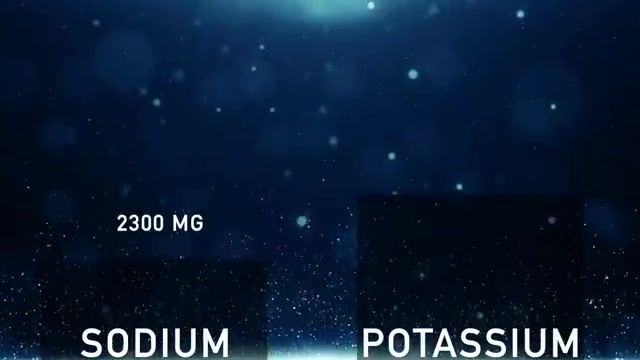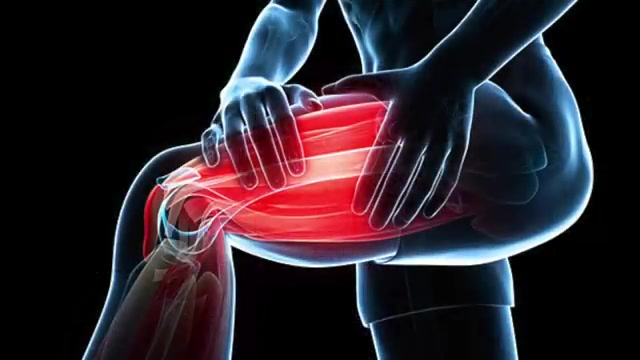
https://www.youtube.com/watch?v=XcKc5TXbUH0
Sodium Sensitivity is a Potassium Deficiency

Wanna talk about the dangers of too much salt or too much sodium .
Okay ?
We have heart disease .
We have high blood pressure .
We have stroke , edema , increased mortality .
Sounds pretty scary .
Right ?
Well , these things occur not for the reason you think .
I mean , the question is , is it really too much sodium ?
Is that what's causing the problem ?
In reality , our body tends to hold sodium if there's a potassium deficiency .
In fact , there's something called salt sensitivity where the body is retaining sodium , but the reason why you retain sodium and therefore water , is because you have a potassium deficiency .
This is something that's really overlooked and not talked about too much .
We're so focused on sodium , we kinda forget about this other mineral called potassium , but sodium potassium always work together in the body .
It's kinda like a teeter totter .

The requirements for sodium per day are 23 100 milligrams , but the requirements for potassium are 47100 .
That's actually more than double .
So this ratio is really , really important .
Okay .
2 to 1 , twice as much potassium as sodium .
And guess what ?
You will no longer be salt sensitive .
In fact , the symptoms of this excess sodium will disappear when you increase your potassium .
You see the majority of the population has this problem of too much sodium and not enough potassium .
Okay ?
They don't consume enough greens .
They eat a lot of processed foods .
You get your sodium from junk foods , refined foods , and restaurant foods .
Very few people ever consume enough potassium foods .
Right ?
They think if I have a banana a day , that's gonna do it .
A banana has about 300 milligrams .
Now remember , you need 47100 .
Okay ?

You'd have to have , you know , more than 12 bananas , and then you're gonna get all the sugar , which is not gonna happen .
So you have this situation where people are just really heavy on the sodium , but very , very low on the potassium , and this is where we have the problem .
On top of that , okay , 38% of the population has a genetic , variation with a certain gene called the ACE gene , which means that gene is overactive , which means they're gonna be more salt sensitive when they have more sodium , and they're gonna have more blood pressure because of that .
This simple solution is just to increase your potassium , especially if you have this gene problem , and not do what everyone else is doing by reducing their sodium , reducing their salt , going on a low salt diet .
Because now they have a situation where they're low in sodium and low in potassium .
And that's even worse because they're gonna be going around so tired .


You need both sodium potassium for something called the sodium potassium pump .
Okay ?
In fact , all of your cells have this pump .
This is what activates the nerves .
This is what activates the muscles .
And when you're deficient in these key electrolytes , boy , you get all sorts of issues with the heart , like arrhythmias .
You get tired , you feel weak , and all you need to do is increase the sodium and potassium , but in the right ratios .
And the real problem is a potassium deficiency .
Low potassium causes the retention of sodium , And this is where you have all the problems with the heart , with the blood pressure , with hardening of the arteries , with increased risk of arrhythmias and stroke .
Potassium is not retained like sodium is .
So when we have a lot of potassium , it's easily eliminated through the kidneys , unless you have like stage 5 kidney disease , which is very rare .

However , sodium is much more retained , especially if you have low potassium .
So this is probably a common cause of , leg cramps as well .
So we do need sodium .
Okay .
We need sufficient amounts , but we need a lot more potassium .
Now to really learn about how to get more potassium through your foods , this is the next video you should watch right here .
Are you looking for a way to reach a wider audience and get more views on your videos?
Our innovative video to text transcribing service can help you do just that.
We provide accurate transcriptions of your videos along with visual content that will help you attract new viewers and keep them engaged. Plus, our data analytics and ad campaign tools can help you monetize your content and maximize your revenue.
Let's partner up and take your video content to the next level!
Contact us today to learn more.